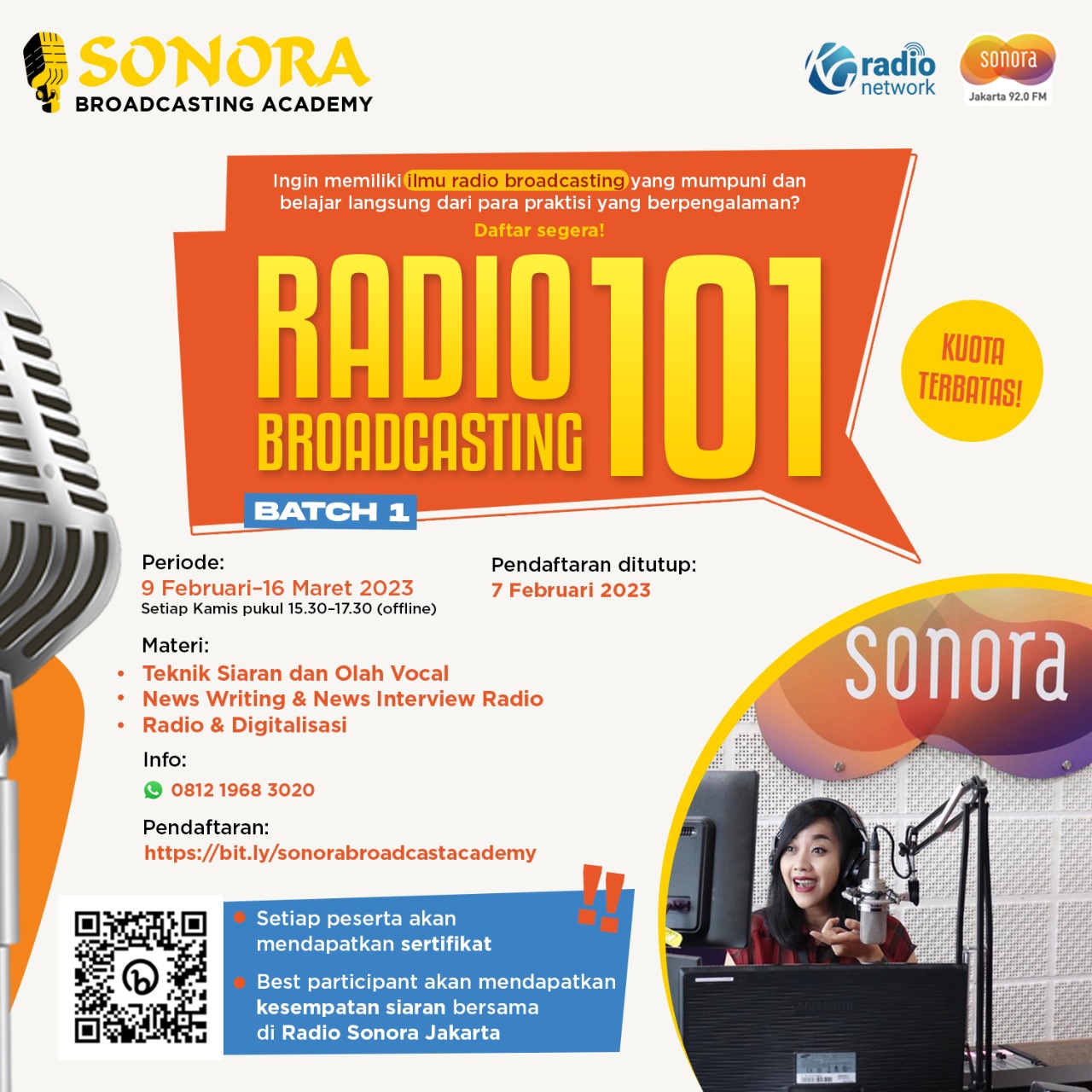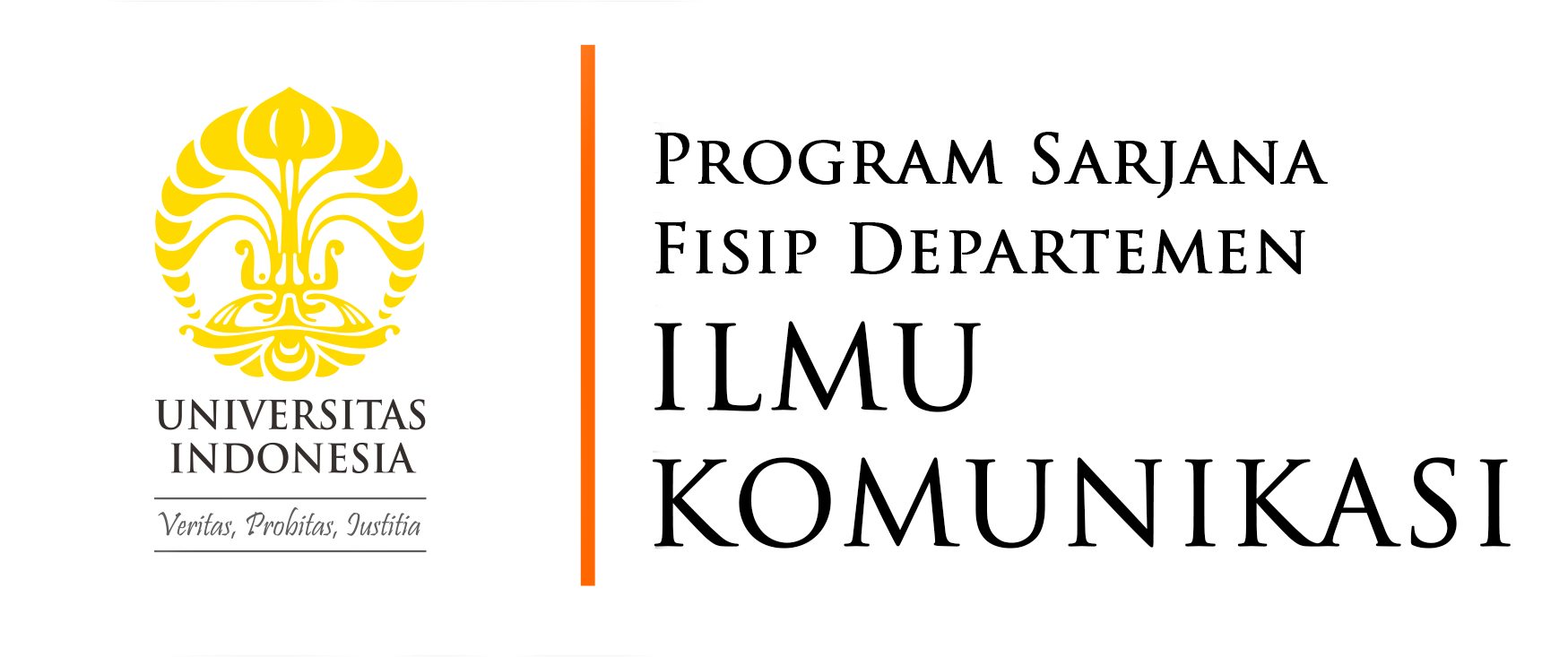The Bachelor of Communication Sciences Program offers an Outcome-Based Education (OBE) Curriculum focusing on learning outcomes. In this case, the learning outcomes are designed in such a way as to ensure that the competencies possessed by graduates of the Undergraduate Program are in accordance with the latest industry needs. Curriculum development involves relevant stakeholders, such as alumni, users/employers, and industry practitioners. UPIC has two undergraduate programs: Regular-Nonregular and double degree International Special Class (KKI).
Program Structure and Curriculum
About the Outcome-Based Education (OBE) Curriculum
Quality Assurance
All aspects of learning, curriculum, and evaluation systems are regularly reviewed by the Academic Quality Assurance Unit (UPMA) Evaluation is conducted regularly through semester internal evaluation (EVISEM) and annual internal evaluation (EVITAH).
Learning Outcomes
The profiles and competencies of graduates are designed regarding the Indonesian National Qualifications Framework (KKNI) in general and KKNI according to the National Higher Education Standards (SN DIKTI).
Graduates Profile
Graduates who can make basic considerations to answer communication problems in urban and rural community issues with global and local dimensions in media studies, journalism, public relations, or advertising based on academic principles and professional ethics.
Graduates Competency
- Maximize the basic ability to develop oneself according to the profession’s needs, both locally and globally.
- Optimize the concept of integrity and academic and professional ethics in general, both locally and globally.
- Examine theoretical concepts in the study of social science in general and communication sciences and its applications in particular.
- Make a rationale for answering global and local issues of urban and industrial society by involving literature review, research design, data collection methods, and appropriate analysis techniques based on academic and professional ethics, both in local and global scope.
- Transfer ideas in the form of messages for various purposes using various communication channels that are beneficial to society and in accordance with legal norms, social norms, and academic and professional ethics, both in local and global scope.
- Select appropriate information technology as a support for studies in the field of communication.
- Make a rationale for answering communication problems in urban and rural community issues with global and local dimensions in media studies, journalism, public relations, or advertising based on academic principles and professional ethics.
Curriculum Structure
(Regular and KKI are different)
Regular-Non-regular (3.5-6 years full-time)
- Total number of semester credit units (SKS): 144
- University Compulsory courses: 12 credits
- Compulsory Faculty courses: 20 credits
- Study Program Compulsory courses: 68 credits
- Elective courses: 44 credits
In the fourth semester, Regular-Non-regular PSDK students will choose one of the four specializations offered, namely:
- Public Relations
- Advertising
- Journalism
- Media Studies
International Special Class (3.5-6 years full time)
Total number of semester credit units (SKS): equivalent to 144
Lectures at UI
- Compulsory University courses: 6 credits
- Compulsory Faculty courses: 9 credits
- Required Study Program courses: 59 credits
- Total credits at UI: 74 credits
- Total credits at partner universities are equivalent to 73-74 credits
In the third semester, students of the KKI program will choose one of the two specializations offered at PSDK, namely:
- Advertising
- Public Relations
Lectures at Partner Universities
The KKI UPIC program partners with three universities: the University of Queensland, Deakin University, and Curtin University. Students can take a number of options or specializations offered by partner universities, namely:
University of Queensland
Bachelor of Communication (BCommun)
-
Public Relations Major
-
Digital Media Major
Bachelor of Journalism (BJ)
Bachelor of Arts (BA)
Curtin University
Bachelor of Arts (BA)
-
Media (Corporate Screen Production/Journalism/Web Media)
-
Marketing
-
Mass Communication
Deakin University
Bachelor of Arts (BA)
-
Animation Major
-
Film Studies Major
-
Journalism Major
-
Photography Major
Bachelor of Communication
-
Digital Media Major
-
Public Relations Major
Bachelor of Creative Arts
-
Visual Communication Design
Final Project
Regular-NonRegular
Students can choose from a number of graduation pathways, namely:
- Thesis (6 credits)
- Final Project (3 credits)
- Non-Thesis-TKA/coursework
Completing a minimum of 144 credits and to submit an article to be uploaded to UIANA as a condition for taking a diploma.
Final project guidelines can be downloaded here.
International Special Class (KKI)
Students complete a minimum of 144 credits at UPIC UI and partner universities and submit articles to be uploaded to UIANA.
The final project guidelines can be downloaded here.
Distance Learning
UPIC offers distance learning programs through a number of Massive Open Online Courses (MOOCs). The MOOCs program taught by UPIC lecturers can be accessed through the idols.ui.ac.id.
Facilities
The Department of Communication Sciences has a number of facilities to support learning activities, such as:
- Audiovisual Laboratory under TVUI
- Audio Laboratory
- Multimedia Laboratory

Getting to Know Online Journalism Practice with Dr. Ngu Ik Ying from Curtin University

Policy Seminar FISIP UI


